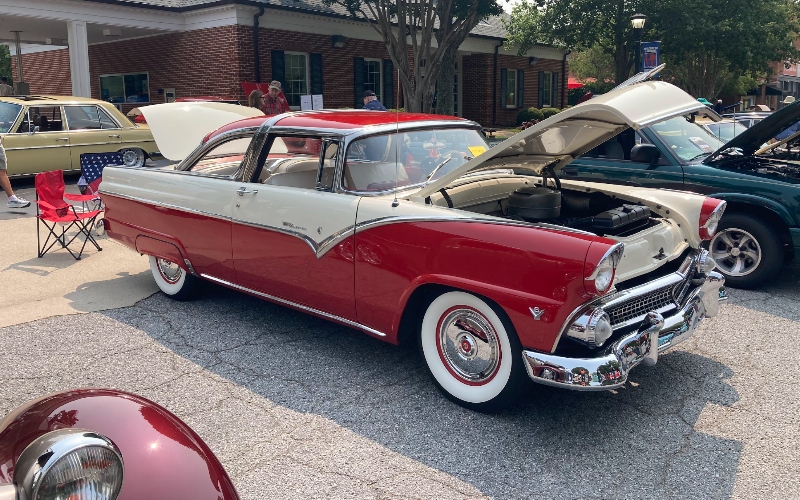‘No!’ is a complete sentence
Published 9:59 am Wednesday, April 17, 2024
|
Getting your Trinity Audio player ready...
|
My guess is that all of us feel pushed pretty much every day. Some people like being so busy that they do not have time to think or reflect upon what is going on in the big picture around them, and some people prefer to simply give up and accept the fact that the world is moving so fast that many of us are being left behind.
But many of us long for the days when we could sit on the front porch shelling beans in the evening without constant interruptions from our cell phones or news updates.
Remember the quote that we flaming liberal conservationists used to tout: “Think globally and act locally.” I think that it needs to change just a little to say: “Think locally and act personally.” The bigger world seems to be whirling out of control, and we feel helpless. Yes, we can campaign for our own political party and write letters, but we must do more. And we CAN do more in our small oasis around Polk County. But we can’t make a change by waiting for someone else to come to our aid; it simply won’t happen if we, as individuals, don’t act to promote change.
Now, I’m going to get a bit more specific as to what I’m talking about. Polk County is growing exponentially, and the rural way of life that we all treasure is being threatened. It’s ironic that the new people are coming because they want to be part of our ‘small town atmosphere,’ but it will disappear when we are inundated with new big homes with a view, more paved roads, big stores, etc. Of course there is a chance for us to make money off of the new arrivals. Land values are increasing; we can sell the vacant lot next door for commercial development or a new apartment building and make more with that sale than we could make by working for years. The county and towns are happy to be getting more taxes thanks to the increased real-estate values, which in turn will be used to pay to cover the expenses of more services needed for more people. Our property taxes have increased accordingly, whether we like it or not. Saluda is trying to rezone areas from residential to commercial and from single-family zoning to multi-family, all to accommodate for the influx of new people wanting to live here.
Many people are having trouble paying the higher property taxes and do not know what to do. These people did not ask for new neighbors all around them, even if they’re nice people with nice cars. They can sell their little home for great profit, but that’s not what they want. They are told that they should feel lucky that their land is now worth $30,000/acre or more; they should feel rich. They’ll be rich if they sell their 5 acres and their little house. What an opportunity!
This is where we are feeling pushed. Personally, being rich has never been my goal in life, and I’m sure that I’m not alone. I’ve been looking for some legal way to push back against this ‘progress’ to save the rural character we all treasure. My neighbor, owner of a 45-acre timber farm, is the one who woke me up to a completely different way of thinking. He is from here, very conservative, a person that I would think would be adamantly against any sort of outside control. But, to my surprise, he asked me about putting a conservation easement on his land. When asked why, he said, “I don’t want anyone telling me what to do, when I must cut my timber.“
We think of conservation easements as being very controlling as to what happens on a piece of land, but there’s a catch. The landowner – not the county or the tax collector or the zoning board – decides what will happen on his or her land, now and in the future. The landowner partners with a conservation organization to determine what is the best-case scenario for that piece of property, be it for agriculture or forestry or limited residential use, all depending upon the land and where it lays. In a way, the conservation easement takes the ‘money’ out of the land. The landowner is saying, “No, I don’t care if this little farm is worth a goldmine for a future Walmart. The land is more valuable to me than the money. Money comes and goes; I don’t want these trees to be cut down to make a parking lot. No!”
So far, the only legal tool that I’ve found that can protect us small landowners against the wave of development gobbling up land is a conservation easement (sometimes called a conservation agreement), either between the landowner and a conservation organization or with the county farmland preservation board. But, first, you have to say, “No! The quality of life for me and my community is worth more than any amount of money with which you may tempt me. I’ve got the papers to prove it!”





